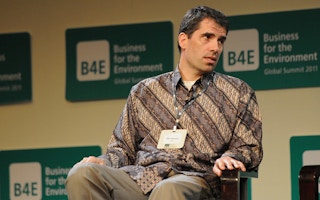Indonesia’s Central Kalimantan province is shaping up to be a hotbed for attracting investments.
It was held up as an example of how Indonesia is “walking the talk” in supporting sustainable businesses who want to tap into Indonesia’s large market.
Rachmat Witoelar, the Indonesian President’s Special Envoy for Climate Change said in a panel discussion on Thursday at the two-day Business for the Environment summit in Jakarta that Indonesia was serious on scaling up investments in the country.
“Any business that furthers environmental sustainability will be supported. Indonesia is aware that the world will look very kindly upon those businesses that practice environmentally friendly techniques. “We are walking the talk. Central Kalimantan is an example of this.” he said.
Central Kalimantan is the third largest province in Indonesia and about one and half times the size of Java. It is also a province with a grim environmental past, having been the location of Suharto’s disastrous mega rice project - a scheme that drained a million acres of peatland for planned large-scale agriculture.
The Governor of Central Kalimantan, Teras Narang, acknowledged this when he told delegates: “We have an unfortunate past, but have learnt from these mistakes. Past exploitation has left a negative impact on our communities, who received very little benefit. And we also had the failure of the 100 million hectare peatland conversion.”
“Although our President has tried his best to enact the reconstruction, various Ministries and agencies have failed to follow through, leaving us with floods during the wet season and fires during the dry season.”
“We want growth but we are prudent, (and are) building sustainability into all our plans,” he said.
The province was chosen in December to become the location for Indonesia’s first REDD pilot scheme, which will see funds flow to the province if it can uphold the moratorium on clearing forests and draining peatlands.
Olav Kjorven, Assistant Secretary General of the UNDP noted that Indonesia “is the epicentre of the global drama that is unfolding every day now about which path to chose.”
“Thanks to the leadership of Norway, we have a new scheme based on performance that gives the private sector a key role in development,” he said.
“It goes without saying that it will not succeed unless there is a partnership between government, civil society and business. In order for fundamental change to happen the private sector cannot just sit and wait for the government to put the necessary policies in place,” he added.
Gita Wirjawan, Chair of Indonesia’s Investment Board, sees the inflow of foreign capital as an encouraging sign. More and more smart money is coming into Indonesia, he noted. Of the 17 billion invested by foreign companies last year, only 2.2 billion went into mining. The rest is going into roads, logistics and other forms of infrastructure. It is evidence of a proper trajectory into the green economy, he said.
But in other areas, capital is not yet easily available. For example, although there is international interest in geothermal energy, Gita said that significant money had yet to follow. He saw the Investment Board as having an important role in making sure investment was directed into the right places:
“We will see a significant unleashing of value in the REDD sector. We’ve got to be very proactive to create the right fiscal incentives to direct the money to other opportunities outside Java. I think the President is serious about directing business onto degraded land,” he said.
“Not only the government, but everybody needs to participate in this process. It is all 230 million Indonesians who will participate in this. Indonesia has committed itself to ensuring the future health of the planet. The REDD scheme is only a part of that, added Governor Teras.
“We are reducing emissions not just for Kalimantan or Indonesia but for the world. We are in one boat, ” he said.
Eco-Business.com’s coverage of the B4E Global Summit 2011 is brought to you by City Developments Ltd (CDL).






















